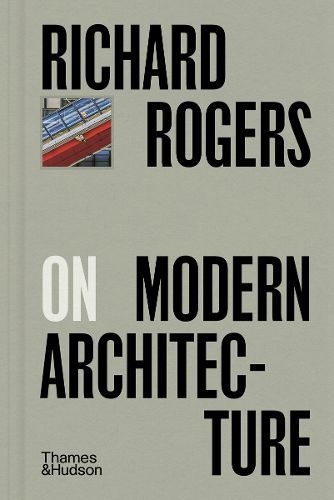Readings Newsletter
Become a Readings Member to make your shopping experience even easier.
Sign in or sign up for free!
You’re not far away from qualifying for FREE standard shipping within Australia
You’ve qualified for FREE standard shipping within Australia
The cart is loading…






'Thames & Hudson's new, affordable, covetable 'Pocket Perspectives': beautifully illustrated essays by canonical writers' Financial Times
A manifesto for the future of architectural practice and the necessity of good design to modern life, by renowned British architect Richard Rogers.
Written in what architect Richard Rogers regarded as a moment of crisis in modern architecture, this essay considers how the way we build - and live - might change for the better. Poor design, monotony and inhuman scale are, Roger argues, not the results of a lack of talent nor the failures of the Modern Movement, but of a surrender to exploitative economic systems and inconsiderate business interests.
Best known for his work on the Pompidou Centre in Paris, the European Court of Human Rights in Strasbourg and the Lloyd's building and Millennium Dome in London, Rogers was perhaps the most original and inventive architect of his time, and was a frequent commentator on the contemporary scene. As a practitioner, he was in the best position possible to appreciate how economic forces can create - or frustrate - good design. A succinct summary of his design philosophies, Richard Rogers on Modern Architecture continues to be a powerful manifesto.
$9.00 standard shipping within Australia
FREE standard shipping within Australia for orders over $100.00
Express & International shipping calculated at checkout
'Thames & Hudson's new, affordable, covetable 'Pocket Perspectives': beautifully illustrated essays by canonical writers' Financial Times
A manifesto for the future of architectural practice and the necessity of good design to modern life, by renowned British architect Richard Rogers.
Written in what architect Richard Rogers regarded as a moment of crisis in modern architecture, this essay considers how the way we build - and live - might change for the better. Poor design, monotony and inhuman scale are, Roger argues, not the results of a lack of talent nor the failures of the Modern Movement, but of a surrender to exploitative economic systems and inconsiderate business interests.
Best known for his work on the Pompidou Centre in Paris, the European Court of Human Rights in Strasbourg and the Lloyd's building and Millennium Dome in London, Rogers was perhaps the most original and inventive architect of his time, and was a frequent commentator on the contemporary scene. As a practitioner, he was in the best position possible to appreciate how economic forces can create - or frustrate - good design. A succinct summary of his design philosophies, Richard Rogers on Modern Architecture continues to be a powerful manifesto.